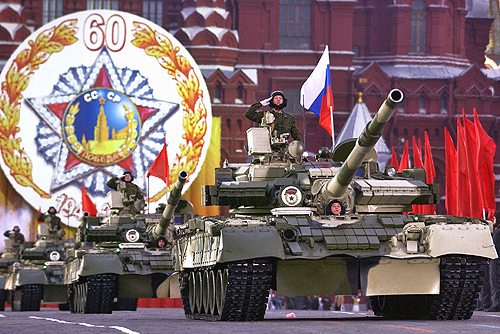Ahead of VE Day celebrations across Europe and Russia, the Russian Ministry of Defense has published previously secret archive materials from the war.
Around 25 countries will take part in Russia’s Victory Day commemorations in Moscow.
The secret documents detail the first days of the Nazi invasion into Soviet territory in 1941.
At the time, Stalin and the Soviet leadership would not believe that Germany had invaded the USSR in order to capture the entire country, and sought to contain the invasion at its borders. The conflicting view points of those early days of the war are shown in the documents, which contain many handwritten corrections over the original typed text.
The Soviets played it relatively cool in those first few days and prohibited its troops from entering German territory at its border. The leadership also prevented airstrikes in Germany to be no more than 150kms over the border. This is despite the aggression shown by German troops.
Within hours, the Soviet leadership realized that the Germans were launching a bigger attack than they had anticipated. But before they could take any further action in mid-June the Nazis launched a huge assault with almost 200 divisions, more than 4000 tanks, almost 50,000 mortars and other weapons, 4,500 aircraft, 200 warships and a total of around five million people taking part.
All at once the Nazis launched their attack along the German border with the Soviet Union, from the Baltic Sea in the north to the Black Sea in the south. German Luftwaffe also attacked targets in the northern states of Lithuania, Latvia, and Estonia, as well as Belarus, Ukraine and Moldova in the east.
The invasion begun with full thrust, and the Soviet troops became embroiled in one of the worst attacks of World War Two. In total the war took the lives of around 27 million Soviet citizens, the Sputnik International reports.
The code name for the Nazi invasion was Operation Barbarossa and is said to be the largest scale invasion in military history. The invasion escalated the war and was part of Hitler’s overall military vision to conquer the east, outlined in his written work ‘Mein Kampf’.
Prior to the invasion the Soviets and Germans had signed a pact to work together against the Allied offensive in the west. The German troops advanced deep into the Soviet Union’s territories, but found it difficult to sustain their supply pipeline and troop numbers as they advanced further east.
By the time German troops reached the outskirts of Moscow they were flailing and a strong Soviet counter-attack began to push them back before they could get to the city.
